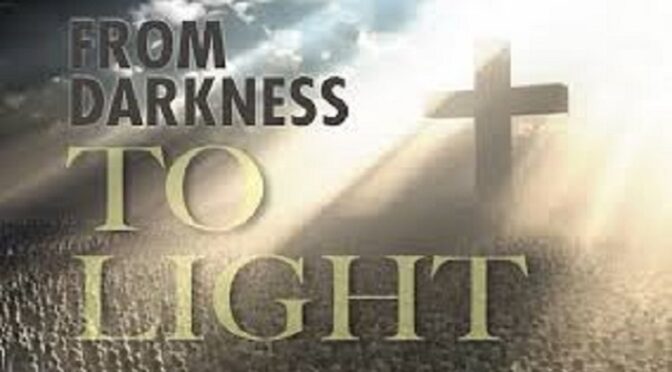Contents
Introduction
Rightly did Jesus indicate in the Gospel according to Matthew (5:17) that his mission was not to abolish neither the Law nor the Prophets but, to fulfil them. Such fulfilment includes the correction of wrong beliefs and theology of Judaism by then and of Christianity today. In this Sunday Gospel, John chapter nine (John 9) is meant to show that things are not always the way they look and the way we think. As Isaiah (55:8) rightly pointed out, God’s ways are quite different from the human way. In John 4:5–42, Jesus succeeded in making the Samaritans understand that discrimination is not of God, but of the evil one. This he did by engaging the Samaritan woman in a conversation that later involved the entire Samaritans of Sychar and culminated in believing in Jesus and recognizing him as the Messiah. Their joy and faith were so intense that they invited Jesus to stay with them in their town. Surprisingly, Jesus spent two days with them before proceeding to Jerusalem. Having given the Samaritans who recognized him as the messiah the living water, Jesus now confronts the Jews to destroy the bridge that is preventing them from participating in the living water. Will he succeed? The end of the story will clarify.
Who sinned?
“As he passed by he saw a man blind from birth. His disciples asked him, Rabbi, who sinned, this man or his parents, that he was born blind?” (John 9:1–2). When Jesus told the Jews that their father Abraham rejoiced at the thought of seeing his day, and that he saw it and was glad, they wondered how Jesus could have seen Abraham when he was not even fifty years old. At such conclusion, Jesus told them that before Abraham was born, he was already (John 8:56–58). On hearing this blasphemy (in their understanding), they wanted to stone him, but Jesus slipped away from their presence (John 8:59). As Jesus walked away from the temple premise, he saw this blind mendicant. The disciples confronted him with this interesting interrogation – Is this man blind due to the sins of his parents or his own sin? But how can.…
Conclusion – What about us?
The disciples asked Jesus who sinned that the man was born blind. In your own case, who sinned that you are always undergoing series of agony, torture, sickness, hardship and difficult moments? Who is responsible? Left for the disciples, they would have accused the parents of the blind man as being responsible for his blindness. In your own case, who are you pointing accusing finger at? You have consulted so many who claim to be prophets and visionaries, talented in spiritual things except your material problem, and they have assured you that your fore-fathers, your mother, your father, brother, sister, wife, husband, children, friend, family member, your neighbour, or one of your relations is responsible for what is happening to you. Be very careful of cheap prophecy. There is every possibility that what is happening to you is an opportunity for God’s work to be manifested in you and through you. Again.…
FOR DETAILS, GET YOUR OWN COPIES OF THE BOOK “THE WORD OF LIFE:
SUNDAY REFLECTIONS” (vols. I‑II-III)!! The reflection for the Fourth Sunday of Lent is found in The Word of Life, vol. I, pages 179–190. Happy reading!
For details on how to get it, contact the author on this link: https://m.me/uchennabiblia?fbclid=IwAR2yeg4a6sDGBp9QGkIvKj6FSADumMokN6lshdE0zuo-JHs6qOmlhA7jyHo
or email me at: postmaster@uchennabiblia.com
or simply send an SMS on 08116100926, and I will get back to you.

